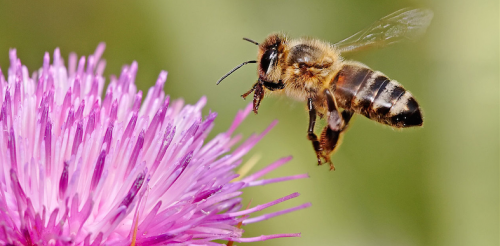SHANE Rattenbury has released the 2015 Code of Practice for Beekeeping in Residential Areas of the ACT, which provides minimum standards for the management of urban beehives.
“With autumn here, the harvest season is upon us, and one of the most important factors of the success of agricultural and horticultural crops, including in our own gardens, is pollination from honeybees,” Shane said.
“Bees, however, are equipped with a sting and good beekeeping practices must be followed to ensure they do not become a nuisance to neighbours. The code of practice aims to achieve a positive coexistence between urban beekeepers and the rest of the community.
John Grubb, President of the Beekeepers Association of the ACT, commended the ACT Government for introducing the code.
“The code provides great guidelines to Canberrans for keeping bees in good health and so they do not adversely affect neighbours,” John said.
“It also recognises that some people have concerns about bees and the document provides a process for them to follow to have their concerns addressed.”
Shane said the management of hive numbers, hive placement, provision of a good water supply and maintaining a quiet strain of bee can help reduce any nuisance that may be caused by the presence of bees.
“Adherence with the standards set out in the code will also help limit the introduction and spread of bee diseases and parasites, helping ensure a healthy bee population in the ACT. Exotic bee species, pests and diseases could be detrimental to the Australian honeybee industry as well as the plant industries that rely on this pollinating agent,” Shane said.
“I encourage the community to educate themselves about bees as it is important for amateur beekeepers to know how to identify biosecurity threats and for the general public to understand that the threat posed by managed bee hives is very low,” Mr Rattenbury concluded.
More information on bee biosecurity is available at beeaware.org.au. The Code of Practice for Beekeeping in Residential Areas of the ACT is available at tams.act.gov.au.
Who can be trusted?
In a world of spin and confusion, there’s never been a more important time to support independent journalism in Canberra.
If you trust our work online and want to enforce the power of independent voices, I invite you to make a small contribution.
Every dollar of support is invested back into our journalism to help keep citynews.com.au strong and free.
Thank you,
Ian Meikle, editor





Leave a Reply